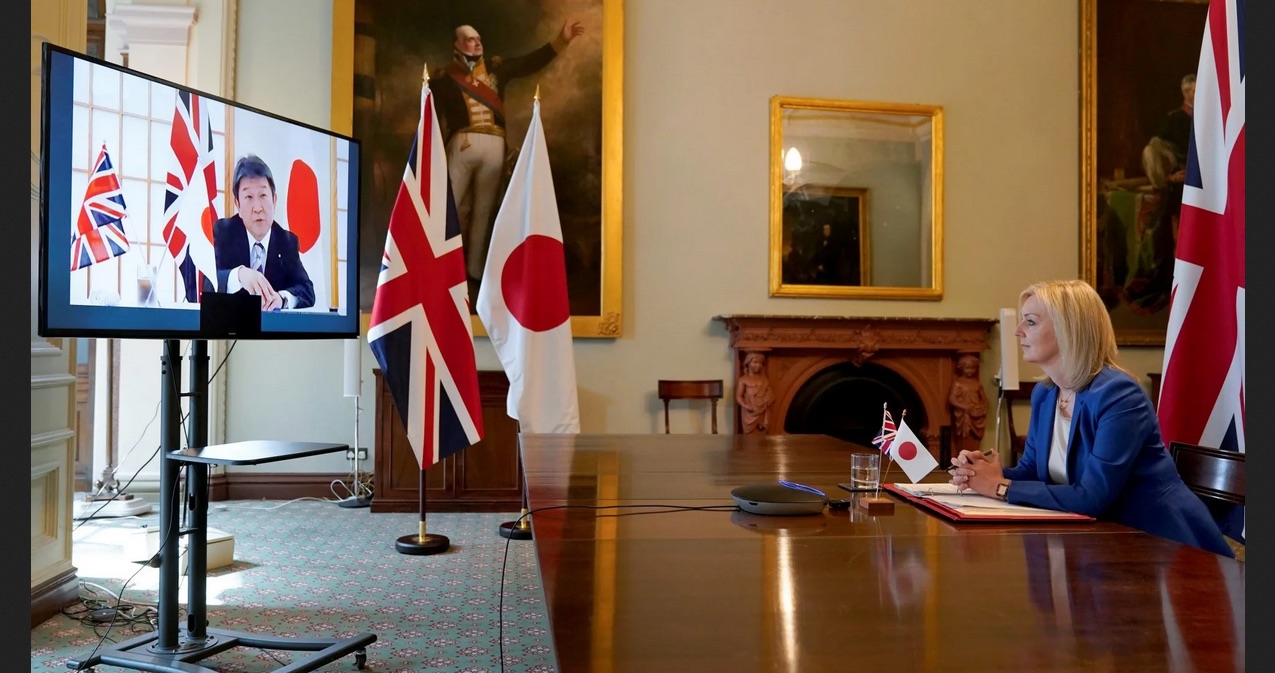UK seeks swift Japan trade deal and CPTPP membership
All the versions of this article: [English] [français]
Nikkei Asian Review | 10 June 2020
UK seeks swift Japan trade deal and CPTPP membership
by RHYANNON BARTLETT-IMADEGAWA
LONDON — The U.K. is looking to accelerate trade deals with countries and blocs across Asia, as the country’s transition period for departure from the European Union is set to expire at the end of the year.
International Trade Secretary Elizabeth Truss told the Nikkei Asian Review in an interview on Tuesday — the day Britain began free trade agreement negotiations with Japan — that relations with Tokyo are "absolutely critical" and that "it absolutely is possible" to conclude a deal this year.
Truss said that the U.K. wants to join the Comprehensive and Progressive Agreement for Trans-Pacific Partnership regional trade pact "as soon as we can," welcoming Japan’s support for Britain’s membership.
"We think it’s a really important strategic aim of the U.K. working with like-minded partners around the Pacific, Japan, but also the likes of Canada, Mexico, Australia and New Zealand too," Truss added, pointing out that the CPTPP, which accounts for 13% of the global economy, already covers much of the Asia-Pacific region and countries that Britain is interested in trading with.
The 11-member CPTPP is the successor to the originally negotiated Trans-Pacific Partnership, or TPP, that had included the U.S. However, President Donald Trump withdrew the country from it upon assuming office in January 2017.
The U.K. is also seeking dialogue partner status with the Association of Southeast Asian Nations, Truss said, adding that it will complement the CPTPP. The U.K. government has already stated that the U.S., Japan, Australia and New Zealand are priority countries for post-Brexit FTAs.
The coronavirus pandemic has prompted the U.K. to reaffirm its commitment to free trade over protectionism, and it is reassessing global supply chains to ensure they are secure and diverse.
"The whole environment of coronavirus has shown how important it is that we work together, that we seek to lower the barriers to trade, that we seek to work with allies in areas like technology, in areas like manufacturing," Truss said.
She added that a trade deal with Japan would signal to the world that the answer to the current economic crisis is "not looking inward, it’s actually reaching out across the world and working with like-minded partners."
The U.K. is engaged in multiple trade negotiations, including with the EU, the U.S., and Australia and New Zealand also on the horizon. This has prompted commentators to question how realistic it is for an FTA to be concluded with Japan in just over six months.
But Truss countered, "it absolutely is possible."
"Japan and the UK are both major players in technology, and I think that will bring huge benefits to our economy in terms of the free flow of data," she said.
The FTA will be based on the existing EU-Japan Economic Partnership Agreement that came into force last year. Japan is the U.K.’s 4th largest non-EU trading partner, and 11th overall, according to the Department for International Trade.
Japanese businesses are concerned because failure to sign a deal before the U.K.’s transition period ends would mean the loss of current favorable trading conditions under the EU-Japan EPA. Any deal would have to be approved by Japan’s parliament, adding to the deadline pressure.
On whether the UK would have to conclude a deal with the EU, its biggest trading partner, before finalizing agreements with others, Truss said such is not the case.
"The work we’re doing with Japan is independent of that," she said. "We’re not going to have regulatory alignment with the EU. We have regulatory sovereignty, so we are able to do that work separately."






